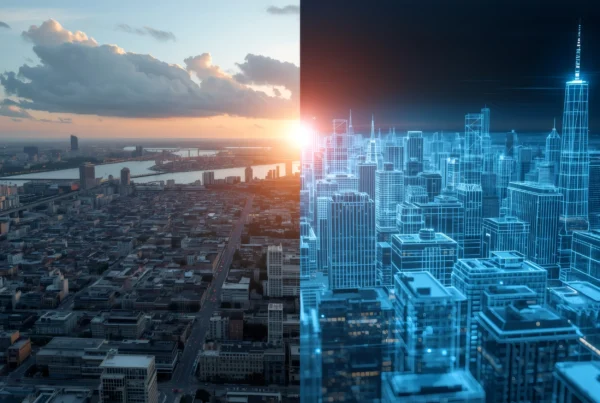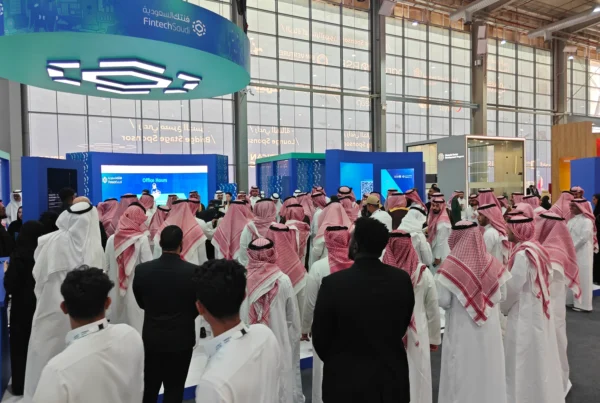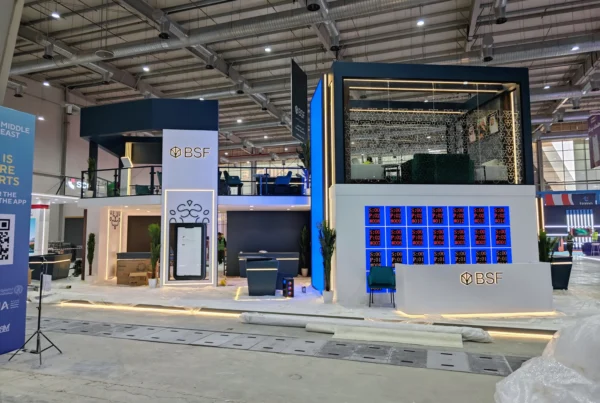From off-plan real estate developments to major product launches, experiential marketing is emerging as a dominant force in how businesses across the Gulf Cooperation Council (GCC) region reach and captivate local audiences. Whether in Saudi Arabia (السعودية), the UAE (الإمارات), Qatar (قطر), Kuwait (الكويت), Bahrain (البحرين), or Oman (عُمان), immersive events and interactive strategies have gained traction, reflecting a cultural emphasis on high-impact, face-to-face engagement. This article explores why experiential marketing resonates so strongly in the Gulf, demonstrating how technology—like digital twins—and community-focused approaches together drive deeper brand loyalty, memorable experiences, and tangible ROI.
In the following sections, we’ll break down how cultural norms, large-scale developments, and the GCC’s strong commitment to innovation make experiential marketing a powerful channel. We’ll also highlight how advanced tools—from AI integrations to interactive showrooms—strengthen brand storytelling in an increasingly competitive environment.
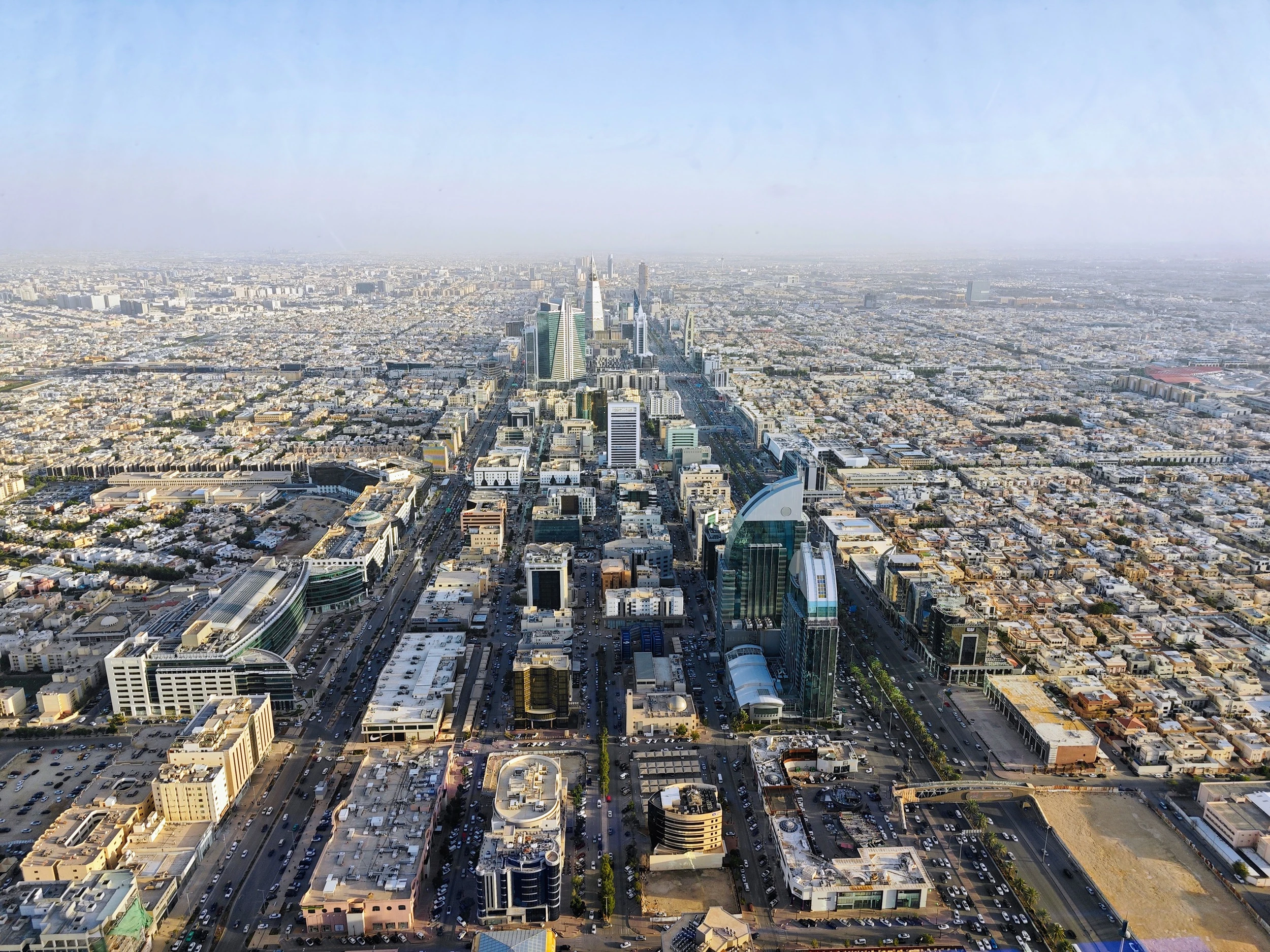
1. The GCC Context: Why Experiential Marketing Thrives
1.1 Rapid Growth and High Expectations
Gulf audiences often encounter an array of brand events, property launches, and promotional expos. Driven by robust economic diversification—particularly in Saudi Arabia (under Saudi Vision 2030)—and mega-initiatives like Expo 2020 Dubai in the UAE, the region is no stranger to large-scale showcases. Visitors and potential buyers anticipate not just static brochures but dynamic experiences that bring products or projects to life.
As consumer expectations rise, brands seek novel ways to connect with local and global audiences simultaneously. Experiential marketing meets this demand by immersing people in event-like encounters that encourage emotional bonding, interactive learning, and real-time feedback. This emphasis on engagement suits the Gulf’s environment, where face-to-face hospitality and memorable gatherings hold deep cultural value.
1.2 Cultural Values and Personal Connection
GCC societies place a premium on personal interaction, hospitality, and shared experiences—qualities central to experiential marketing. Whether at a lavish iftar gathering in Dubai or a real estate expo in Riyadh, the preference for in-person networking and hands-on exploration fosters trust. Immersive solutions that reflect local heritage (e.g., majlis-inspired meeting zones, Arabic calligraphy experiences, or region-specific design elements) resonate strongly.
At the same time, a modern, tech-forward ethos—evident in projects like NEOM or advanced “Smart Interactive Solutions” in big cities—echoes the region’s commitment to progress. Blending these deep-rooted cultural traditions with futuristic technology is precisely why experiential campaigns gain traction.
2. Defining Experiential Marketing for the Gulf
2.1 Beyond the Standard Event
Experiential marketing goes beyond placing products on a pedestal or distributing flyers. It revolves around:
- Immersive Environments: The brand or product is showcased in a multi-sensory setting, letting visitors physically interact with or simulate real-world usage.
- Emotional Engagement: Attendees feel part of a story, forging a personal link that surpasses typical ad impressions.
- Social Amplification: The experience compels visitors to share on social media or word-of-mouth, a significant factor in close-knit Gulf communities.
For brand owners in the GCC, adopting these principles can shape well-received property launches, brand events, or investor showcases. The shift to AI-infused or digital twin-based experiences simply takes these tactics to the next level, melding real-time analytics with physical setups.
2.2 Synergy with Technology: Digital Twins & AI
As detailed in Digital Twin Buildings vs. Traditional 3D Models: Key Differences and Benefits, digital twin technology couples photorealistic 3D visuals with sensor-driven data. Coupled with AI solutions (like occupant analytics or VR-based customization), the same event can shift from a simple display to a living, adaptive encounter—mirroring occupant feedback instantly.
This is especially relevant for GCC markets, where real estate expansions and large-scale infrastructure developments like those addressed in Navigating GCC Region Construction Boom: 5 Ways Digital Twins Minimize Risk and Delay hinge on real-time data to expedite timelines and secure investor buy-in.
3. Driving Off-Plan Real Estate Marketing with Experiential Events
3.1 The Challenge of Off-Plan Sales
In a robust property market—be it Riyadh’s new financial zones or waterfront mega-projects in Qatar—developers rely heavily on “off-plan” sales to secure early commitments. Traditional marketing struggles to paint a compelling picture of a tower that hasn’t broken ground, especially for foreign investors who can’t physically inspect the site.
3.2 Immersive Showrooms and Digital Twin Tours
Experiential marketing addresses this challenge by letting potential buyers “step into” future properties. Virtual experiences can incorporate:
- 3D Walkthroughs: Based on digital twin frameworks, prospective buyers can move around unbuilt apartments, evaluating floor plans, finishes, or even day/night cycles.
- Interactive Showrooms: Adopting User-Centric Strategies: Mapping the Customer Journey in an Interactive Showroom ensures each stage—from greeting to final decision—is carefully orchestrated, with digital tools prompting “wow” moments.
When combined with AI-driven occupant or buyer preference data, marketers refine their follow-ups, ensuring targeted, culturally sensitive messaging. This aligns with local preferences for personalized service and transparency, strengthening brand credibility among GCC buyers—regionally and abroad.
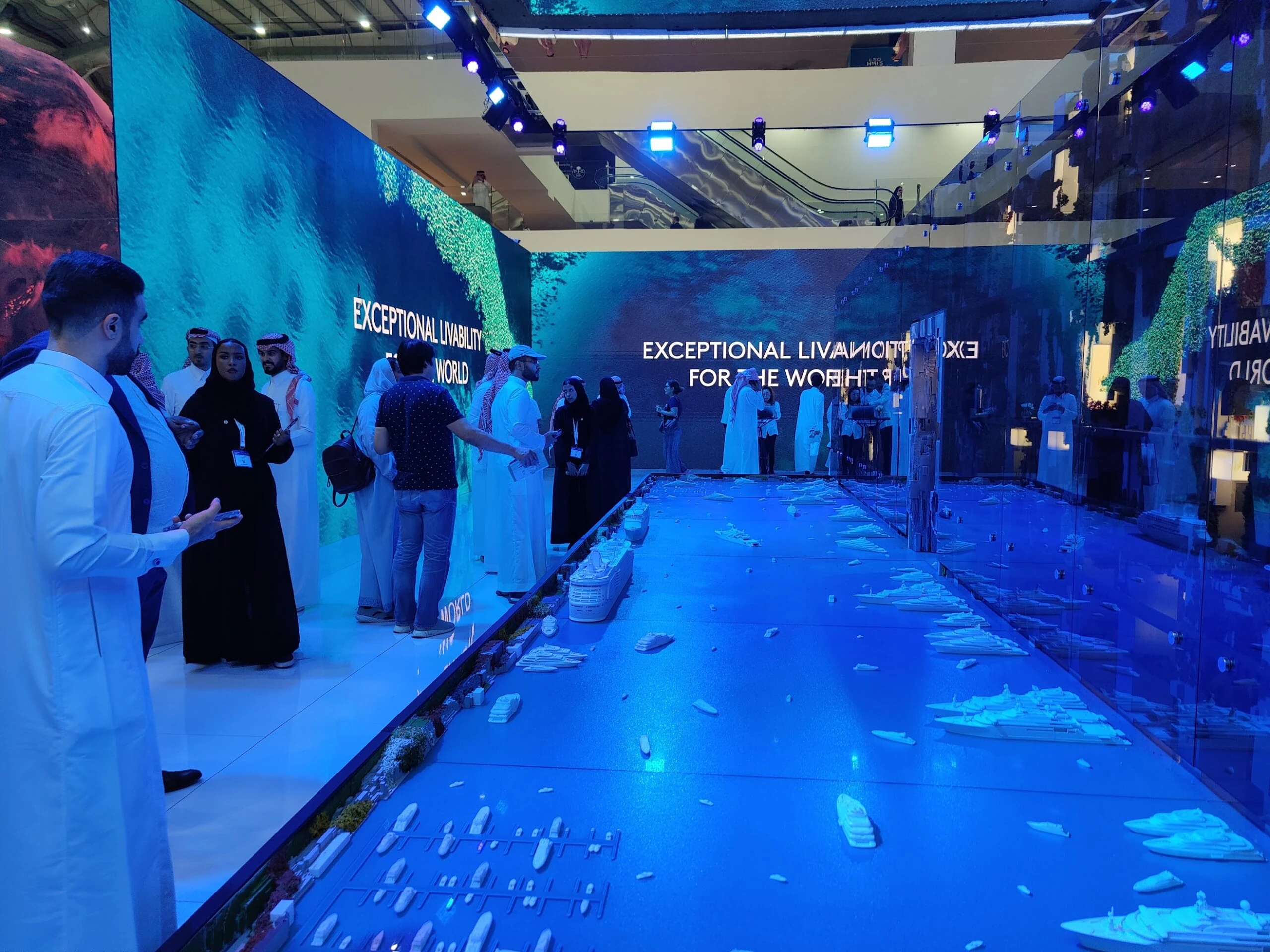
4. Facility Operations: Enhancing Occupant Experience Post-Launch
4.1 Turning Tenants into Active Participants
After the hype of a property launch, experiential marketing doesn’t have to fade away. Building managers can host interactive community events or VR-based occupant feedback sessions—pulling from the success factors in Fusing Digital Twins with Events: The 2025 Digital Interactive Experience That Elevates Real Estate Engagement. For instance:
- AR Maintenance Tours: Tenants scan facility areas to see behind-the-scenes info, building trust that managers care about transparency.
- Interactive Amenities: Occupants reserve sports facilities or meeting rooms through immersive apps or kiosk-based touchscreens, encouraging social sharing and brand loyalty.
These tactics reflect a people-centric approach that resonates with Gulf cultural norms of hospitality and communal interaction.
4.2 AI-Guided Optimization
Over time, data gleaned from occupant usage drives real-time adjustments—like reducing power in seldom-used rooms or adjusting AC levels to occupant volume. This synergy between experiential marketing and operational excellence fosters occupant satisfaction. Hence, the building’s brand reaps ongoing positive word-of-mouth, helping maintain occupancy rates in a competitive local market.
5. Cultural Dimensions Driving Experiential Marketing Success
5.1 High-Value Brand Encounters
Across Saudi Arabia, the UAE, and Kuwait, cultural gatherings hold significance—festivals, special family occasions, or majlis-based discussions. Experiential marketing events that include local traditions (like offering Arabic coffee or weaving in cultural dance or design) can spark strong emotional bonds. Paired with advanced tech like digital twins or immersive VR, the event merges tradition with innovation—an appealing formula for local audiences.
5.2 Preference for Tangible Demos
In the Gulf’s aspirational market, prospective buyers or visitors often want to see and feel a brand’s promises. That’s why live interactive exhibits, hands-on digital displays, or AR-based product samplings often outperform standard presentations. It’s not about passive consumption; it’s about an active encounter that respects local tastes for personal interactions and verifiable quality.
6. Local Examples: GCC Industries Tapping Experiential Marketing
6.1 Automotive and Luxury Retail in the UAE
High-end car brands in Dubai commonly hold private showrooms where customers can sample vehicle features or custom-trim options in VR. Coupling these with occupant analytics (like eye-tracking to see which features captivate them) yields a data-driven, experiential event that fosters brand loyalty—mirroring what’s seen in other local immersive setups like advanced real estate showrooms.
6.2 Mega-Projects in Saudi Arabia
Projects aligned with Saudi Vision 2030 frequently adopt experiential campaigns to attract global investors. Beyond standard press briefings, they orchestrate large-scale, event-like unveilings—bringing in digital twin renderings so visitors can “experience” the future layout. This synergy with advanced tech is a hallmark of large developments showcased in Bridging Global Distances: How Gulf Real Estate Uses Digital Twins.
6.3 Hospitality and Tourism in Qatar
After globally televised sports events, Qatar invests in long-term tourism offerings. Experiential marketing might feature immersive tours of new resorts or AR-led museum experiences. By adopting digital twin visuals, property or attraction owners can host VIP gatherings that digitally “unfold” the space’s evolution—merging entertainment with a data-driven, interactive approach.
7. Measuring ROI and Long-Term Impact
7.1 Quantifying Engagement
Unlike passive campaigns, experiential marketing collects direct visitor feedback:
- Foot Traffic and Dwell Times: Sensors gauge how long attendees interact with digital twin displays or interactive demos.
- Lead Conversions: Particularly in real estate, a spike in inquiries or on-the-spot reservations indicates success.
- Social Media Amplification: Encouraging visitors to share experiences fosters brand recognition across GCC audiences, many of whom actively engage on platforms like Instagram or TikTok.
7.2 Building Brand Loyalty
As occupants or clients form stronger emotional connections through immersive experiences, brand loyalty often increases. Such intangible gains—word-of-mouth referrals, occupant retention, or a heightened brand image—are vital in a region where competition for wealthy investors or discerning tenants is fierce.
8. Potential Barriers & Solutions
8.1 Cost and Resource Allocation
Orchestrating a full-scale experiential campaign—especially with AR/VR or digital twin elements—demands substantial budgets and skilled specialists. Smaller Gulf-based firms might pilot a limited concept. Over time, as they confirm ROI, expansions to multi-day events or cross-city marketing tours become feasible.
8.2 Cultural Sensitivities
When hosting immersive events in regions like Saudi Arabia or Kuwait, brands must tailor experiences to local customs—ensuring no conflict with conservative norms, modesty guidelines, or religious considerations. Careful planning ensures these events remain inclusive and respectful, vital for building a positive brand image.
8.3 Technical Expertise
Advanced XR (extended reality) setups, occupant analytics, or data-driven dashboards require specialized teams—3D artists, software developers, event producers. Partnering with experts in digital twin solutions—like we discuss in Digital Twin Solutions—can fill knowledge gaps, particularly for large real estate or entertainment events.
9. Future Trends: The Evolving Landscape of Experiential Marketing in the Gulf
9.1 AI-Powered Personalization
Beyond just letting visitors explore a VR showcase, emerging solutions utilize AI to adapt content on the fly—like adjusting interactive environment elements based on real-time occupant reactions. It could even tailor brand messaging to each visitor’s demographics or preferences, increasing emotional resonance.
9.2 Seamless Physical-Digital Journeys
More GCC events may integrate “phygital” strategies, where guests experience a mix of real-world booths and digital twin overlays. Some might even incorporate live occupant feedback—like scanning a personal QR code to see a unique visual transformation in the event environment, enhancing the sense of individual involvement.
9.3 Multi-Project or City-Scale Approaches
Cities might unify multiple developments under a single immersive platform, hosting shared experiences for prospective investors or visitors. This approach, teased by city-level digital twins, merges real-time data from different sites for a grand, interconnected brand experience.
Conclusion: Why Experiential Marketing Resonates with Gulf Audiences
In an era marked by rapid GCC development and ever-rising visitor expectations, experiential marketing stands out as a potent strategy for fostering emotional connections, delivering cultural authenticity, and showcasing advanced technology. By weaving in digital twin capabilities—alongside AI analytics—brands can move beyond static presentations to event-like, interactive experiences. This appeals to:
- Investors seeking tangible demonstrations.
- Occupants or attendees craving personal involvement and cultural relevance.
- Event planners and developers aiming to differentiate their brand in a crowded marketplace.
If you’re eager to explore how immersive marketing can transform your property launches or brand activations, consider the insights we’ve shared—ranging from User-Centric Strategies in Showrooms to Fusing Digital Twins with Events. For tailored solutions or to integrate advanced digital interactive solutions into your campaigns, feel free to reach out via Contact Chameleon Interactive. By embracing experiential marketing that aligns with local cultural nuances and cutting-edge technologies, you’ll position your offerings at the forefront of Gulf innovation—delivering the immersive experiences that this region increasingly demands.
FAQ: Experiential Marketing and Gulf Audiences
1. Why is experiential marketing especially effective in the GCC region?
Experiential marketing resonates with Gulf audiences because it taps into cultural values favoring personal connections and immersive gatherings. Events that blend tradition and advanced technology suit the region’s love for innovation alongside face-to-face hospitality, making brand experiences more memorable and authentic.
2. How do digital twin solutions enhance experiential marketing in places like Saudi Arabia or the UAE?
By merging real-time data with photorealistic virtual environments, digital twin technology allows event attendees or potential buyers to “step into” future developments or product scenarios. This level of immersion builds excitement, trust, and a sense of exclusivity—vital in Saudi Arabia, the UAE, and other GCC markets known for high standards of presentation.
3. Can experiential marketing aid off-plan real estate sales in Qatar, Kuwait, or Bahrain?
Absolutely. Prospective buyers find it more compelling to explore interactive, VR-based showrooms that reflect realistic building designs and occupant experiences. This immersive feel helps them make decisions faster, improving off-plan sales in Qatar, Kuwait, Bahrain, and beyond.
4. What types of cultural considerations should we keep in mind when planning an experiential event in the Gulf?
Tailoring the environment to reflect local norms—such as ensuring modesty guidelines or offering Arabic coffee and culturally significant design elements—goes a long way in establishing comfort and respect. Organizers should also remain mindful of any regulations or local customs governing event themes and interactive content.
5. What steps should a brand or developer take to get started with immersive marketing strategies in the GCC?
It’s best to begin with a pilot event or a showroom demo. Collaborate with experts in digital interactive solutions to integrate AR/VR technology and occupant analytics. Make sure to design experiences that respect local traditions, and measure success through metrics like attendee engagement, lead conversions, and social media sharing to justify a broader rollout.
